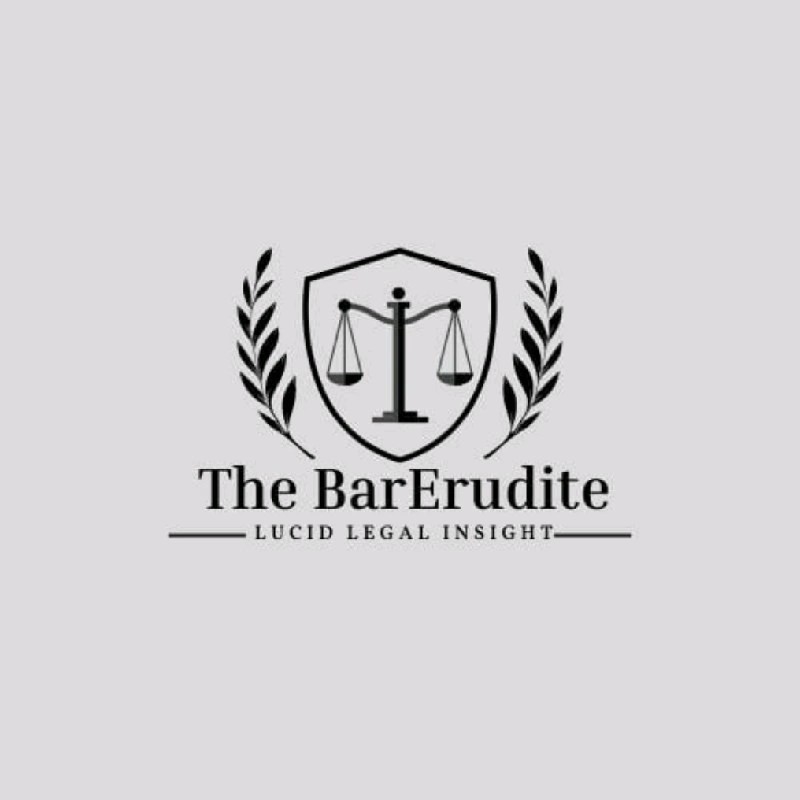Author Details
Sakshi Agarwal pursuing PhD at the University of Mumbai
Introduction
Artificial intelligence (AI) has become a transformative force in many sectors. Including the
legal profession. With the ability to analyse large amounts of data, analyse large amounts. To
improve processes and improve decision-making, AI is set to revolutionize the way legal
services are delivered. However, integrating AI into legal practice poses significant ethical and
regulatory challenges. This must be resolved to ensure fairness, responsibility and transparency.
This article explores the impact of AI on legal practice. It focuses on the ethical and regulatory
dimensions.
Meaning of the Artificial Intelligence (AI)
Artificial Intelligence in legal practice refers to the application of AI technology to assist
lawyers, judges, and legal professionals in various tasks. These tasks include legal research.
Contract review Predictive analytics and even court decisions. AI systems such as natural
language processing and machine learning algorithms it is designed to analyze legal documents.
Interpret jurisprudence and provide insights that were previously the exclusive domain of human
experience.
AI involves complex computational methods that allow machines to imitate human intelligence.
In the legal context. This means using natural language processing to understand legal jargon.
Using machine learning to detect patterns in the results of two cases and integrate decision-
making algorithms to assess risk and recommend solutions.
How has AI Involved
AI contributes to legal compliance through devices and platforms that increase efficiency and
accuracy. For example:
Document Analysis: Because of the AI-powered framework, I was able to review
extensive legal documents to identify relevant requirements and discrepancies. Reduce
human error and save time. Especially in complex litigation cases
Predicative Analytics: AI can predict the outcome of two cases by analyzing historical
data. Help lawyers prepare better strategies and manage two customer expectations.
Predictive models also help to assess the likelihood of success in litigation or arbitration.
Contract Drafting and Review: Companies that receive help from AI can streamline
their contract drafting processes by recommending conditions for raising children
Emphasizing potential risks and ensuring compliance with laws and regulations.
Legal Research: AI systems such as LexisNexis and Westlaw Edge use complex
algorithms to produce case law and legal research. This significantly reduces the time
spent by legal professionals. They also offer contextual research resources that improve
the quality of the two legal arguments.
Chabots and Virtual Assistants: An AI-based chatbot answers two basic customer
questions. Answers common questions and guides users through a two-step legal process.
Seeking legal advice or becoming more accessible.
eDiscovery: In the discovery phase of litigation, IAs can efficiently sort through large
amounts of data to identify relevant information. This significantly reduces the time and
costs involved.
How AI Works for the Country
AI in legal practice provides a number of benefits to countries, including:
Improve Access to Justice: AI reduces the cost of legal services. It gives us greater
access to marginalized communities that are often unable to provide traditional legal
assistance. While online dispute resolution platforms powered by AI are extremely useful
in this regard.
Enhanced Efficiency: AI helps lawyers focus on complex legal issues. Improve
productivity and customer satisfaction through repetitive tasks. and automatic
administrative work Courts can also benefit from using AI to improve their process
management systems..
Speedy Dispute Resolution: The AI framework helps us analyze different cases more
quickly As a result, problems can be resolved faster and reduce backlogs in the judicial
process. This is especially important in countries like India, where the judicial system
faces a large accumulation of cases.
Economic Growth: This happens because AI-based legal technology promotes
innovation. Creating entrepreneurs in the legal technology sector and contributing to the
country’s global economic development. Countries that invest in IA legal technology will
gain a competitive advantage in the global legal services market.
For developing countries, IA can fill gaps in the legal infrastructure. They offer accessible and
effective solutions. In developing countries, IA ensures accuracy and consistency in legal
decisions. Promoting a strong legal environment.
What Are the Legal Standings of AI
Integrating AI into legal practice raises several legal concerns:
Data Privacy: Traditional AI systems generally rely heavily on data. This raises data
protection and privacy issues. Countries with strict data protection laws, such as the EU’s
GDPR created a benchmark for AI regulations to comply with the law. In jurisdictions
where there is no law. The risk of data breach and misuse is very high.
Bias and Discrimination: AI algorithms can inherit distortions from training dice. This
may lead to discriminatory results in legal or employment decisions. Ensuring fairness in
algorithmic decision-making is a major challenge. This requires rigorous testing and
monitoring.
Accountability: Determining responsibility for errors or inaccuracies committed by an
AI system is complex: Should the developer, user, or AI owner be held responsible? This
lack of clarity represents a risk for lawyers and their clients. Intellectual Property Rights: Using AI to create original content or issues raises
ownership and copyright issues. For example, who determines the rights to legal notes
issued by AI or users, developers, or the AI platform?
Admissibility in Courts: The use of evidence provided by AI in court raises challenges
regarding its validity, reliability and the oil capacity of the legal system. Courts need
clear guidance on the admissibility of evidence obtained from AI.
The regulatory framework must address these issues to guarantee the ethical and legal use of AI
in the legal sector. Open laws are needed to provide clarity and build trust among stakeholders
with ethical guidelines such as those offered by a lawyer’s instructions. We can reinforce these
regulations further.
Current Scenario Related AI
AI’s current situation in legal practice is a mix of opportunities and challenges:
Adoption Rates: Many advocacy agencies and courts around the world use AI
frameworks to increase efficiency and decision-making. However, small businesses often
face barriers to adoption due to high costs and lack of specialized knowledge. Large
companies are integrating AI into their workflows to stay competitive.
Regulatory Developments: Governments and international organizations are actively
working on frameworks to regulate the use of AI in legal compliance. For example, the
EU Artificial Intelligence Act guarantees the ethical use of AI in all sectors. Countries
like the United States and India are also exploring a similar picture.
Ethical Concerns: The legal community is debating the ethical implications of relying
on AI, not to mention respect for bias, fairness, and accountability. It is essential to
ensure that AI systems are consistent with the principles of fairness. Law faculties are
beginning to include AI ethics as part of the curriculum to prepare future legal
professionals.
Technological Advancements: AI technologies such as GPT models and advanced
natural language processing. It’s getting more complicated. By offering previouslyunimagined capabilities in legal allocation and research, companies like ROSS
Intelligence and Kira Systems are paving the way for a new era of legal technology.
Judicial Interest: In India, the Supreme Court’s Artificial Intelligence Committee is
exploring ways to leverage IA for judicial purposes, such as court transcripts and legal
research. Around the world, organizations such as the American Bar Association are
developing guidelines for the ethical use of IA in the legal profession. Law.
Conclusion
Artificial intelligence has enormous potential to revolutionize legal practice, increase efficiency,
reduce costs, and improve access to justice However, integrating AI into the legal profession
poses significant ethical and regulatory challenges that must be addressed. Data Privacy
Guarantee Elimination of algorithmic distortions and the creation of accountability mechanisms
are critical to promoting trust in AI systems.
While various countries aim at building a strong regulatory framework the legal community must
work together to ensure that AIs serve as a beacon of justice. Nor is it the source of inequality.
As a supporter Technology innovators and policymakers must work together to promote a
balanced approach that promotes innovation. While protecting ethical standards at the same time
By meeting these challenges, AI can transform the legal industry into an accessible one.
Effective and more equitably, the future of AI in legal practice depends on finding the right
balance between innovation and regulation. This paves the way for a fair and effective legal
system for all.
Bibliography
American Bar Association (2024) ‘The Ethics and Regulation of AI’, Law Practice Magazine,
January/February. Available at:
https://www.americanbar.org/groups/law_practice/resources/law-practice-
magazine/2024/2024-january-february/the-ethics-and-regulation-of-ai/ (Accessed: 9 January
2025).
Attorney at Law Magazine (2024) ‘Navigating Ethical and Regulatory Challenges of Generative AI in Law
Firms’. Available at: https://attorneyatlawmagazine.com/practice-management/legal-
ethics/navigating-ethical-and-regulatory-challenges-of-generative-ai-in-law-firms (Accessed: 9
January 2025).
Brodkin, J. (2023) ‘Lawyers have a real bad day in court after citing fake cases made up by ChatGPT’, Ars
Technica, 23 June. Available at: https://arstechnica.com/tech-policy/2023/06/lawyers-have-
real-bad-day-in-court-after-citing-fake-cases-made-up-by-chatgpt/ (Accessed: 9 January 2025).
Cerny, J. and Delchin, S. (2019) ‘Legal Ethics in the Use of Artificial Intelligence’, Squire Patton Boggs.
Available at: https://www.squirepattonboggs.com/-
/media/files/insights/publications/2019/02/legal-ethics-in-the-use-of-artificial-
intelligence/legalethics_feb2019.pdf (Accessed: 9 January 2025).
Eliot, L. (2020) ‘Authorized and Unauthorized Practices of Law: The Role of Autonomous Levels of AI
Legal Reasoning’, arXiv preprint arXiv:2008.09507. Available at:
https://arxiv.org/abs/2008.09507 (Accessed: 9 January 2025).
Garrity, K. and Kashinsky, L. (2023) ‘ChatGPT enters the legislative chat’, Politico, 13 July. Available at:
https://www.politico.com/newsletters/massachusetts-playbook/2023/07/13/chatgpt-enters-
the-legislative-chat-00106066 (Accessed: 9 January 2025).
Jeantet, D. and Savarese, M. (2023) ‘Brazilian city enacts an ordinance that was secretly written by
ChatGPT’, Associated Press, 30 November. Available at: https://apnews.com/article/brazil-
artificial-intelligence-porto-alegre-5afd1240afe7b6ac202bb0bbc45e08d4 (Accessed: 9 January
2025).Khan, A.A. et al. (2022) ‘AI Ethics: An Empirical Study on the Views of Practitioners and Lawmakers’,
arXiv preprint arXiv:2207.01493. Available at: https://arxiv.org/abs/2207.01493 (Accessed: 9
January 2025).
LawStreet Journal (2023) ‘Artificial Intelligence and Law: The Impact of AI on Legal Practice and
Potential Regulatory Issues’. Available at: https://lawstreet.co/vantage-points/artificial-
intelligence-and-law-the-impact-of-ai-on-legal-practice-and-potential-regulatory-issues
(Accessed: 9 January 2025).
Neumeister, L. (2023) ‘Lawyers blame ChatGPT for tricking them into citing bogus case law’, Associated
Press, 8 June. Available at: https://apnews.com/article/artificial-intelligence-chatgpt-courts-
e15023d7e6fdf4f099aa122437dbb59b (Accessed: 9 January 2025).
Perlman, A. (2025) ‘Generative AI and the Future of Legal Scholarship’, Suffolk University Law Review,
26 December. Available at: https://www.reuters.com/legal/legalindustry/so-meta-ai-written-
paper-says-ai-is-future-legal-scholarship-2025-01-02/ (Accessed: 9 January 2025).
Quach, K. (2023) ‘Local council in Brazil passes ChatGPT-written proposal’, The Register, 2 December.
Available at: https://www.theregister.com/2023/12/02/chatgpt_law_brazil/ (Accessed: 9
January 2025).
Reuters (2025) ‘Artificial intelligence litigation in the crystal ball for 2025’, 2 January. Available at:
https://www.reuters.com/legal/litigation/column-artificial-intelligence-litigation-crystal-ball-
2025-2025-01-02/ (Accessed: 9 January 2025).
Valvoda, J. et al. (2023) ‘The Ethics of Automating Legal Actors’, arXiv preprint arXiv:2312.00584.
Available at: https://arxiv.org/abs/2312.00584 (Accessed: 9 January 2025).



Leave a Reply